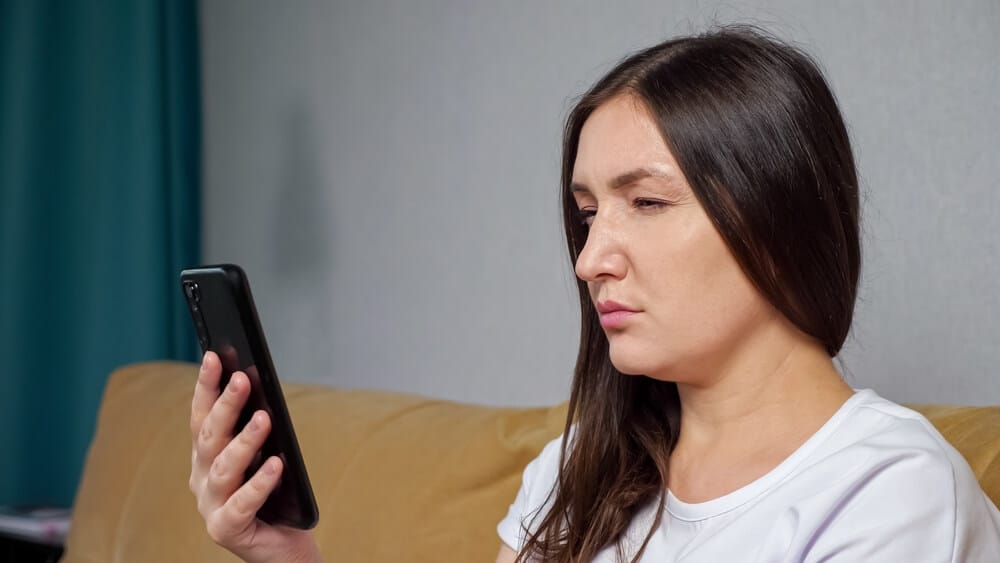Are you straining to make out street signs when you drive? Maybe you had to increase the font size on your cell phone or computer screen. These issues are common signs you need glasses, but you might be overlooking some other symptoms.
If your vision seems less than clear, you might be wondering how to know if you need glasses? Visiting an eye doctor is the only way to know for sure if you need glasses, but it helps to recognize the common symptoms.
Signs You Need Glasses
If you are wondering when to get glasses, there are several signs and symptoms of bad eyesight that warrant an eye exam with your doctor. The most common signs you need glasses include the following:
Eye Strain
Feeling a strain on your eyes is one of the symptoms that you may need glasses. Eye strain is most notable after intense tasks such as long-distance driving. Further, prolonged exposure to screens, including tablets, computers, and mobile phones, can cause digital eye strain which impacts our vision.
Fatigue is also one of the symptoms that you need glasses. There is evidence that patients with visual impairments experience more fatigue than those with good sight. There may be other explanations for your eye fatigue, so only a professional knows how to determine if you need glasses to alleviate this problem.
Frequent Headaches
A common yet overlooked symptom of vision impairment is frequent unexplained headaches. An initial presentation of weak eyesight is a headache. Persistent headaches occur with vision impairments, but many people ignore them as migraines. So, if you are wondering when to get glasses, here is another compelling reason.
Blurry Vision (Farsightedness or Nearsightedness)

If you’re wondering when to get glasses, one of the main symptoms will be blurred vision. You might find it a struggle to focus on far-away objects. Similarly, difficulty in reading books and texts can also be a sign of bad eyesight.
Far-sightedness refers to an inability to see objects near you. It is typically a consequence of aging. Thus, if you are older than 50 and must constantly reposition the book or smartphone to obtain clear vision, it may be one of the symptoms you need glasses. On the other hand, short-sightedness can occur at any age. Blurry images on the TV screen from a distance are also symptoms of bad eyesight.
Difficulty Seeing at Night
Night blindness is one of the signs you need glasses. A blurry vision due to weak eyesight can be crippling. The vision impairment worsens with exposure to dim lights. You might find it tough to focus and view objects in the dark.
If you’re wondering how to know if you need glasses for night blindness, consider what it’s like driving in the dark. Many individuals complain of a complete inability to drive at night. Research suggests a high prevalence of reduced visual acuity or the ability to distinguish objects from a distance, i.e., 20/40 patients with night blindness. Poor night vision due to nearsightedness is curable with prescription eyeglasses.
Visual impairment at nighttime may or may not be associated with visual acuity issues. Different eye conditions like cataracts, retinitis pigmentosa, and vitamin A deficiency causing night blindness, get treated by surgical, medicinal interventions and dietary modifications.
Urge to Rub Eyes
Dry eyes may point towards a need for eyeglasses. Dry, itchy, and tired eyes increase your urge to rub your eyes more frequently. On the other hand, several individuals needing glasses experience watery eyes. Itchy and watery eyes are also the consequences of extra strain on the eyes. So, if you notice a higher-than-normal eye rubbing frequency, you should schedule a comprehensive eye examination for a timely diagnosis.
Squinting While Focusing on a Screen
A sign of vision loss and one of the symptoms you need glasses is squinting or aligning your eyes in different directions. You may find yourself squinting in front of a computer screen to focus on the letters. The consistent effort to maintain focus is one of the signs you need glasses. Eye strain and underlying vision problems can both be the culprit here. However, both are frequently interrelated and glasses can help correct.
Double Vision (Diplopia)
Double vision can be a serious condition that needs immediate medical attention. Acute onset of the condition may be due to stroke, aneurysms, migraines, brain tumors, etc. However, the chronic development of diplopia might be due to keratoconus, an eye infection, or even cataracts. Keratoconus is a condition in which the cornea transforms into a cone shape.
Diplopia generally needs extensive medical intervention to treat. In the case of cataracts, your faulty natural lens is replaced by an artificial one. Here, the artificial lens substitutes glasses.
The Appearance of Halos or Auras Around Objects
You might be a candidate for a new pair of glasses if you have started to notice a halo of light around light-emitting sources. If you observe an aura of light around street lights and car headlights, it might be due to underlying vision impairment, so it is one of the signs you need glasses.
Those who have undergone LASIK surgery often have Halos. Halos are common complications of LASIK eye surgeries and can often improve dramatically with a small correction. A LASIK consultation can help you out with the issue. When present in a habitual glasses wearer, all the symptoms mentioned above call for a change of glasses.
Eye Conditions That Are Correctable with Glasses
According to the World Health Organization (WHO), more than 2 billion people worldwide suffer from vision impairments. About half of those cases could have been prevented or remain untreated, leaving over a billion people unable to see clearly. Corrective lenses are one of the most common treatments since they can correct a variety of eye conditions.
Farsightedness (Hyperopia)
In hyperopia, distant objects may appear clear, whereas near ones seem blurry. Convex lens glasses can correct farsightedness. Distance impairments get divided into mild, moderate, severe, and blindness levels that depend on differences in visual acuity.
Nearsightedness (Myopia)
Myopia is common in individuals and is characterized by blurred distant objects while near objects appear clearly. Children can also have difficulty focusing on chalkboards and TV screens, so pediatric eye care is vital for school-going children. Concave lens glasses correct nearsightedness.
Presbyopia
Reading glasses or bifocals are the way to rectify presbyopia. It is a normal aging condition in which the lens loses its flexibility. One of the signs you need glasses with this condition is when you find that you cannot focus on nearby objects.
Astigmatism
Astigmatism is a corneal or lenticular abnormality characterized by blurry and stretched images. It is common in children, and the condition arises due to uneven distribution of light on the retina. Glasses can correct astigmatism too. Contact lenses and prescription glasses are the prevalent treatment modalities for astigmatism in children.
Remember, kids may not know how to tell you if they need glasses, so keeping up with regular appointments is critical. Kids might not know or recognize the symptoms, but an eye doctor can easily recognize the signs you need glasses.
When to Get Glasses and Consult an Eye Doctor

Ignoring the signs of bad eyesight can only lead to worsening symptoms. If left untreated, the decline in visual acuity can be more severe. Eye strain and headaches can seriously affect the quality of your life.
Seeing an eye doctor regularly is how to know if you need glasses because they can monitor your vision and identify any early signs. Being proactive is the best way to manage and even prevent serious eye conditions.
If you notice some signs you need glasses, work with the care team at Art of Optiks. We are one of Minnesota’s best eye care facilities. Schedule an appointment with Art of Optiks today, so you can receive timely diagnosis and treatment if you are experiencing some of these symptoms you need glasses.

